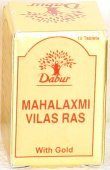Vriddhadaruka, Vṛddhadāruka, Vriddha-daruka: 3 definitions
Introduction:
Vriddhadaruka means something in Hinduism, Sanskrit, biology. If you want to know the exact meaning, history, etymology or English translation of this term then check out the descriptions on this page. Add your comment or reference to a book if you want to contribute to this summary article.
The Sanskrit term Vṛddhadāruka can be transliterated into English as Vrddhadaruka or Vriddhadaruka, using the IAST transliteration scheme (?).
In Hinduism
Ayurveda (science of life)
Nighantu (Synonyms and Characteristics of Drugs and technical terms)
Source: WorldCat: Rāj nighaṇṭuVṛddhadāruka (वृद्धदारुक) is the Sanskrit name for a medicinal plant identified with either a) Argyreia nervosa (synonym Argyreia speciosa or Hawaiian baby woodrose or elephant creeper) or b) Merremia peltata (synonym Ipomoea petaloidea), both from the Convolvulaceae or “moring glory family” of flowering plants, according to verse 3.117-119 of the 13th-century Raj Nighantu or Rājanighaṇṭu. Vṛddhadāruka is commonly known in Hindi as Vidhārā and Samudra-soka; in Bengali as Bījtāḍak; in Marathi as Samudra-sokha; in Gujarati as Samandar-sosa, or Vardhāro; in Tamil as Samudrapacchāī; and in Telugu as Samudrapal.
Vṛddhadāruka is mentioned as having fourteen synonyms: Āvegī, Juṅgaka, Dīrghabāluka, Vṛddha, Koṭarapuṣpī, Ajāntrī, Chāgalāntrikā, (second variety synonyms:) Jīrṇadāru, Jīrṇā, Phañjī, Supuṣpikā, Ajarā and Sūkṣmapatrā.
Properties and characteristics: “both varieties of Vṛddhadāruka are sweet. These are slimy and cure the ailments due to vitiated kapha and vāta. These promote strength and are beneficial for cough and āma-doṣa (symptoms due to improper digestive metabolism). The second variety is comparatively less effective”.
Unclassified Ayurveda definitions
Source: PMC: Phytochemical investigation of natural and in vitro raised Vṛddhadāruka plantsVṛddhadāruka (वृद्धदारुक):—Argyreia nervosa, commonly known as “elephant creeper”, is a woody climber that belongs to the family Convolvulaceae. Seeds of this plant contain hallucinogens including ergot alkaloids and a naturally occurring lysergic acid amide. Traditionally the plant is used in the treatment of gonorrhea, strangury, chronic ulcers, diabetes, anemia and cerebral disorders. The plant is also used as appetitiser, brain tonic, cardiotonic, aphrodisiac. It possesses anti-inflammatory, immunomodulatory, antibacterial, antiviral and antifungal activities.

Āyurveda (आयुर्वेद, ayurveda) is a branch of Indian science dealing with medicine, herbalism, taxology, anatomy, surgery, alchemy and related topics. Traditional practice of Āyurveda in ancient India dates back to at least the first millenium BC. Literature is commonly written in Sanskrit using various poetic metres.
Biology (plants and animals)
Source: Google Books: CRC World Dictionary (Regional names)1) Vrddhadaruka in India is the name of a plant defined with Argyreia fulgens in various botanical sources. This page contains potential references in Ayurveda, modern medicine, and other folk traditions or local practices.
2) Vrddhadaruka is also identified with Argyreia malabarica.
3) Vrddhadaruka is also identified with Argyreia nervosa It has the synonym Ipomoea speciosa (L.f.) Pers. (etc.).
4) Vrddhadaruka is also identified with Argyreia setosa It has the synonym Convolvulus setosus (Roxb.) Wall..
Example references for further research on medicinal uses or toxicity (see latin names for full list):
· Synopseos Plantarum (1805)
· Fl. Ludov. (1817)
· Bulletin de l’Herbier Boissier (1897)
· Hortus Britannicus (1826)
· Species Plantarum (1753)
· Botanische Jahrbücher für Systematik, Pflanzengeschichte und Pflanzengeographie (1893)
If you are looking for specific details regarding Vrddhadaruka, for example health benefits, side effects, chemical composition, extract dosage, pregnancy safety, diet and recipes, have a look at these references.

This sections includes definitions from the five kingdoms of living things: Animals, Plants, Fungi, Protists and Monera. It will include both the official binomial nomenclature (scientific names usually in Latin) as well as regional spellings and variants.
See also (Relevant definitions)
Partial matches: Vriddha, Daruka.
Full-text (+2): Dirghabaluka, Vriddha, Jungaka, Phanji, Chagalantrika, Kotarapushpi, Jirnadaru, Jirna, Avegi, Ajara, Supushpika, Samudrapacchai, Vidhara, Bijtadak, Samandar-sosa, Samudra-sokha, Samudra-soka, Vardharo, Samudrapal, Ajantri.
Relevant text
No search results for Vriddhadaruka, Vṛddha-dāruka, Vrddha-daruka, Vṛddhadāruka, Vrddhadaruka, Vriddha-daruka; (plurals include: Vriddhadarukas, dārukas, darukas, Vṛddhadārukas, Vrddhadarukas) in any book or story.
Related products


